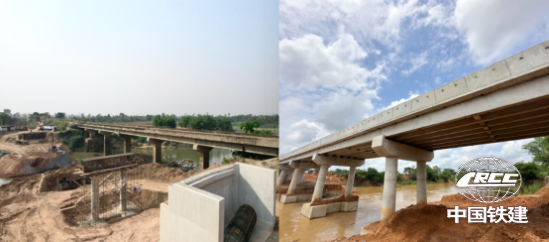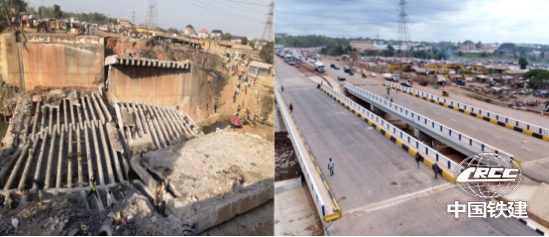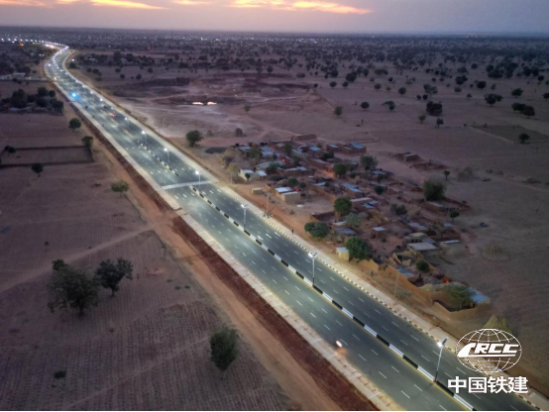 | Home | > News > Company News |
Nigeria's Federal Ministry of Works recently held a series of ceremonies to mark the completion and commencement of several key projects, including a number undertaken by CCECC.
The Federal Asu River Bridge Project, located in Ebonyi State, is a crucial transportation infrastructure initiative spearheaded by the federal government. Once the new bridge is operational, it will work in conjunction with the existing bridge to alleviate regional traffic congestion and enhance road safety.
Another significant undertaking is the Federal Owo River Bridge Project. The original bridge had completely collapsed due to structural damage, causing severe traffic disruptions and significantly hindering the movement of local residents and market logistics. This project has been a priority for the federal government this year.
In Kano and Jigawa States, the Federal Kano Hadejia Road Project's second section was steadily advanced despite challenges such as construction during the rainy season and traffic interference. Its early completion underscores CCECC's strong reputation for integrity and timely delivery.
The Federal Kano Yakasai Road Project, situated in Kano State's western economic corridor, links important agricultural areas around Kano City. Throughout its construction, the project team diligently implemented all construction plans and extensively promoted localized management, ensuring the smooth and successful completion of the project.
Lastly, the Federal Kano Northern Bypass Project, located in northern Kano urban area, presented numerous challenges due to many bridges along the route, heavy traffic, and complex traffic diversions, leading to significant construction interference. In the face of these hurdles, the project team will meticulously execute resource mobilization plans to lay a solid foundation for the orderly advancement of all key milestones.
These five infrastructure projects are set to significantly improve public welfare. They will effectively ease regional traffic congestion and inconvenience, play a positive role in refining the national transportation network, streamlining logistics channels, and promoting integrated urban-rural development. Furthermore, they will inject new momentum into local economic and social development, serving as a vital link connecting public well-being with urban progress.



